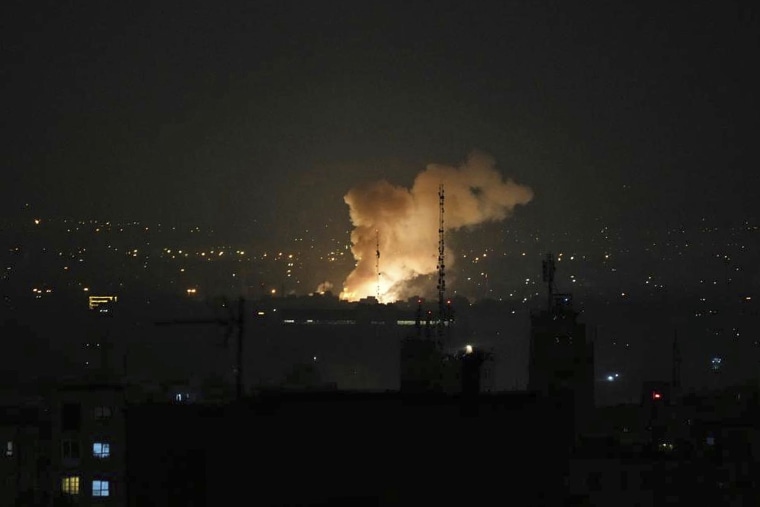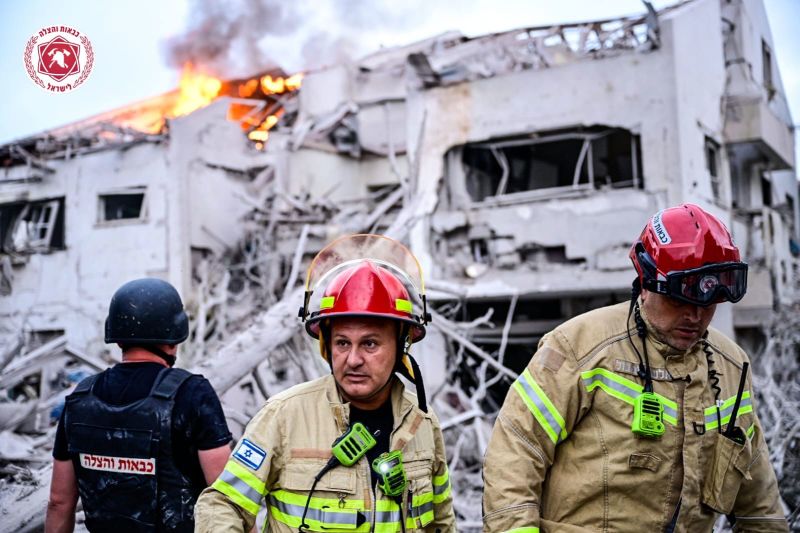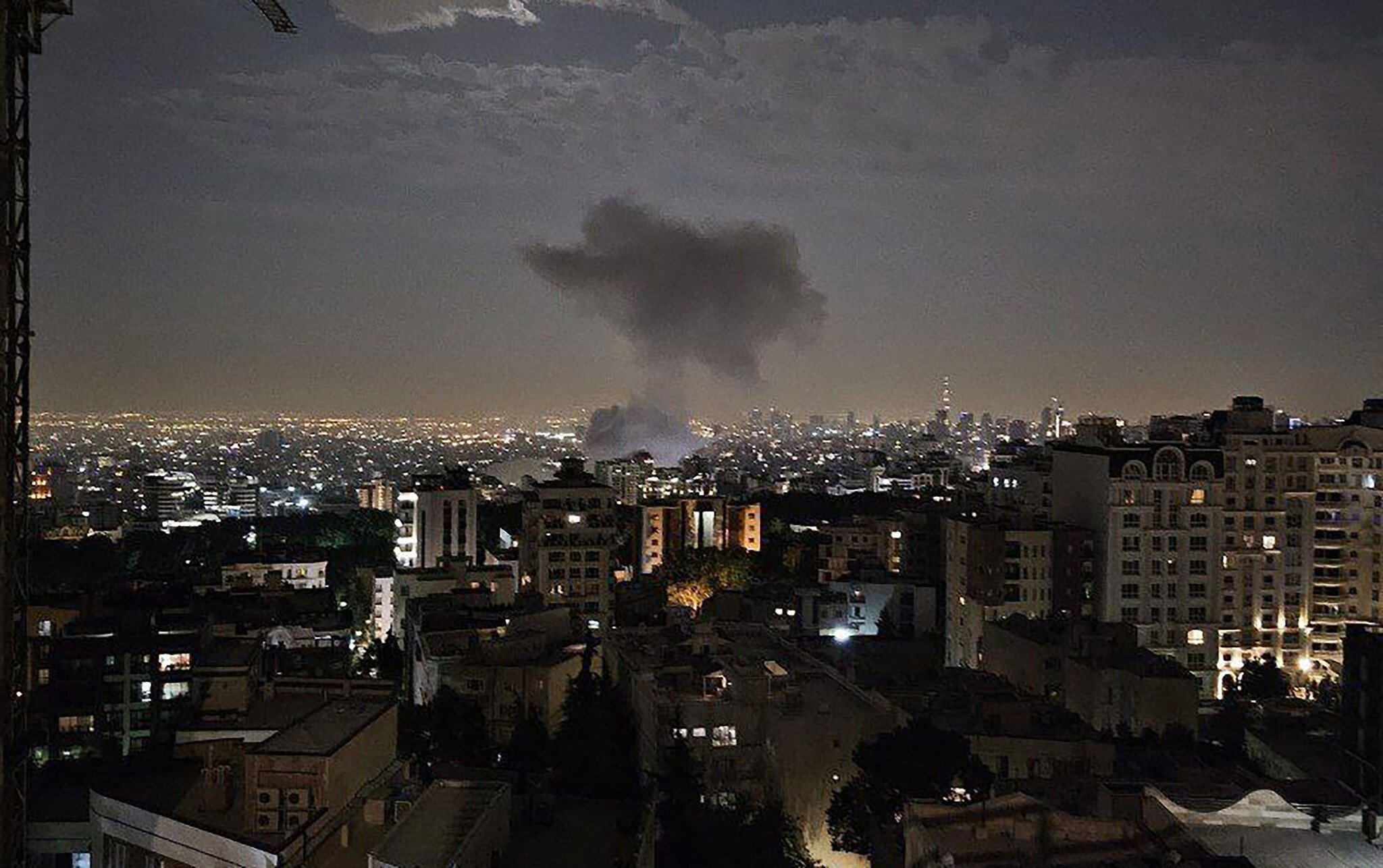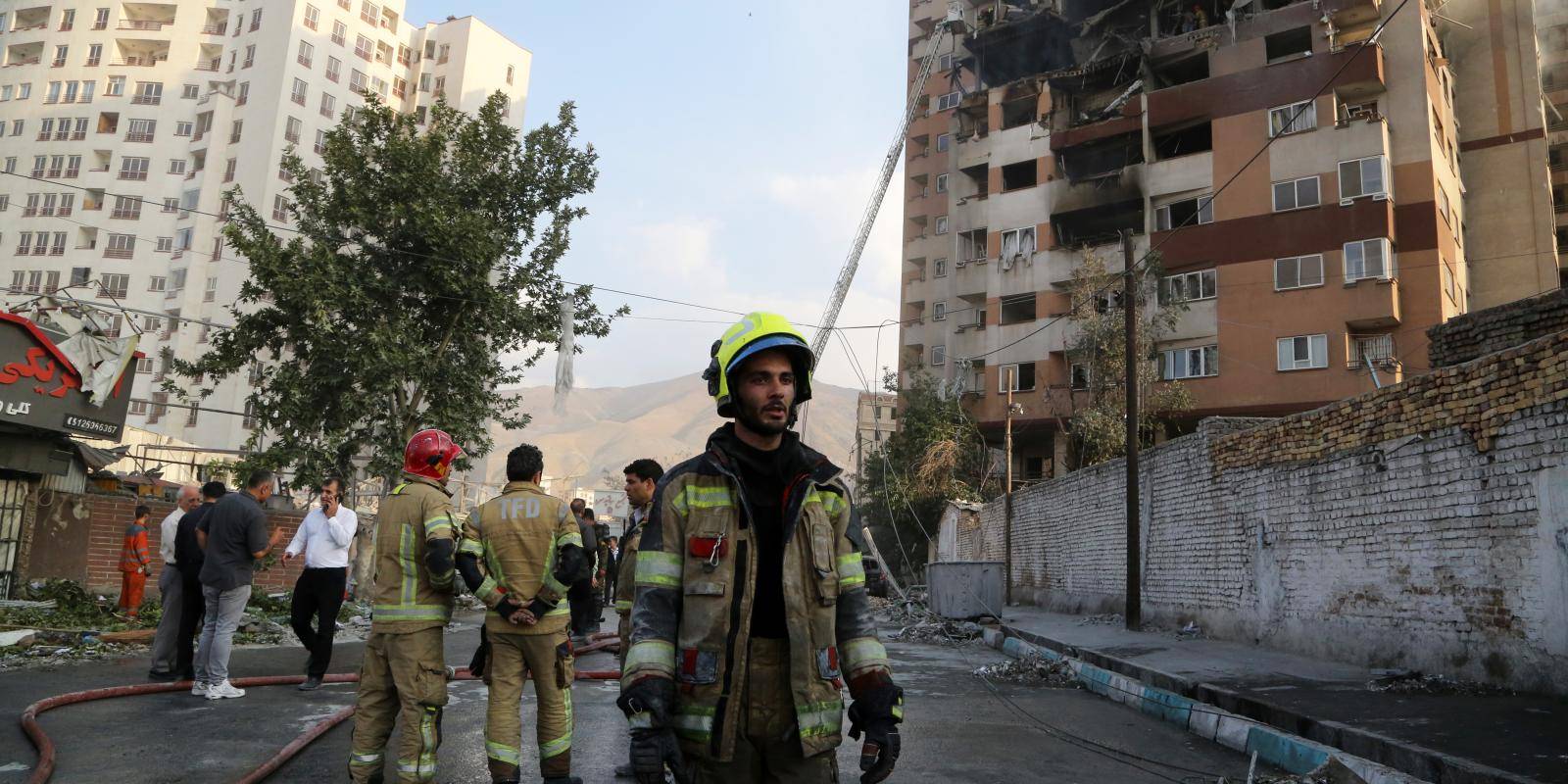Iranian President Masoud Pezeshkian Reportedly Injured in Israeli Airstrike, Sparking Internal Suspicions

Iranian President Masoud Pezeshkian sustained minor leg injuries during an Israeli airstrike last month, according to Iranian state media reports emerging this week. The semi-official Fars News Agency, affiliated with the Islamic Revolutionary Guard Corps (IRGC), reported the incident, which has heightened tensions in the region and raised concerns about internal security within Iran.
Details of the Airstrike: Supreme National Security Council Targeted

The reported airstrike occurred on June 16/17, 2025, targeting a meeting of Iran's Supreme National Security Council in a building in western Tehran. According to the Fars News Agency, other senior officials, including the Parliament Speaker and the Judiciary chief, were also present at the meeting. The report indicates that six projectiles hit the entrances and exits of the building, forcing officials to evacuate via an emergency hatch. The incident has led Iranian authorities to suspect a possible internal leak of information to Israel, given the accuracy of the strike.
Khamenei Accuses Israel of Attempting to Weaken the Islamic Republic

On July 16, 2025, Iran's Supreme Leader Ayatollah Ali Khamenei addressed the recent escalation of conflict, stating that Israel's attacks during the 12-day war, which began on June 13, 2025, were intended to weaken the Islamic Republic's system and incite unrest. He vowed that the regime is prepared to respond to any further attacks.
US Assessment Indicates Limited Success in Striking Iranian Nuclear Sites

Adding another layer of complexity to the situation, a new U.S. assessment, reported on July 17, 2025, indicates that American strikes in June only destroyed one of the three Iranian nuclear sites targeted. The other two sites were not as badly damaged, suggesting that enrichment activities could resume within months. This revelation casts doubt on the effectiveness of the military strikes in hindering Iran's nuclear program.
Timeline of Key Events Leading to the Current Crisis

The current situation is the culmination of a series of events over the past month:
- June 13, 2025: Israel launched surprise strikes on Iranian nuclear and ballistic missile facilities, initiating a conflict referred to as the "12-day war."
- June 16/17, 2025: The alleged Israeli airstrike occurred, reportedly injuring President Pezeshkian and other officials during a Supreme National Security Council meeting in Tehran.
- June 22, 2025: The United States launched its own strikes on Iranian nuclear facilities at Fordo, Isfahan, and Natanz.
- July 6, 2025: President Pezeshkian, in an interview with Tucker Carlson, accused Israel of attempting to assassinate him by bombing the location of a meeting.
Stakeholders and Their Positions

Several key stakeholders are involved in this escalating conflict:
- Iran: The Iranian government, led by President Masoud Pezeshkian and Supreme Leader Ayatollah Ali Khamenei, views the Israeli strikes as an attempt to destabilize the regime and its nuclear program. They deny seeking nuclear weapons but have escalated uranium enrichment.
- Israel: Considers Iran a significant threat due to its nuclear program and support for regional proxies. Israel has reportedly conducted numerous strikes to prevent Iran from developing nuclear weapons and to counter its regional influence.
- United States: A key ally of Israel, the U.S. has also conducted strikes on Iranian nuclear facilities and is engaged in diplomatic efforts to reach a nuclear deal, with a looming deadline for sanctions.
- European Allies (France, UK, Germany): Working with the U.S. on diplomatic solutions and supporting the potential "snapback" of UN sanctions.
Reports also suggest growing public anger within Iran towards the government for failing to provide security and for the casualties suffered during the Israeli strikes, highlighting underlying anti-regime sentiment.
Reports and Statements from Reliable Sources

Information regarding these events has come from various sources:
- Fars News Agency (Iran): Reported President Pezeshkian's injury and details of the alleged strike on the Supreme National Security Council meeting.
- Ayatollah Ali Khamenei (Iran's Supreme Leader): Stated Israel's intention to "overthrow the system" and vowed retaliation.
- U.S. Officials (unnamed in reports): Cited by NBC News for a new assessment on the damage to Iranian nuclear sites, indicating only one of three was mostly destroyed.
- Institute for the Study of War: Provided assessments on the impact of U.S. and Israeli airstrikes on Iran's nuclear program.
- United Against Nuclear Iran (UANI): A non-profit organization that opposes Tehran's efforts to develop nuclear weapons, has commented on the ongoing situation and diplomatic efforts.
Potential Consequences and Controversies

The reported injury to President Pezeshkian, coupled with accusations of an assassination attempt, signifies a potential escalation in the conflict, indicating a more direct targeting of high-level Iranian leadership. The suspicion of an "internal leak" adds to the tension, highlighting internal divisions within Iran.
Escalation of Conflict and Nuclear Program Status

The recent strikes by both Israel and the U.S. on Iranian targets, along with Iran's retaliatory actions, suggest a highly volatile and escalating conflict. The U.S. assessment regarding the limited damage to Iranian nuclear sites may fuel debate on the efficacy of military strikes versus diplomatic resolutions.
Sanctions and Public Discontent

The looming August deadline for the potential reimposition of UN sanctions on Iran adds further pressure. If no nuclear deal is reached, it could further destabilize the economic situation in the country. Furthermore, reported public anger within Iran over the government's perceived failures to protect its citizens suggests potential for internal unrest, given existing anti-regime sentiments.